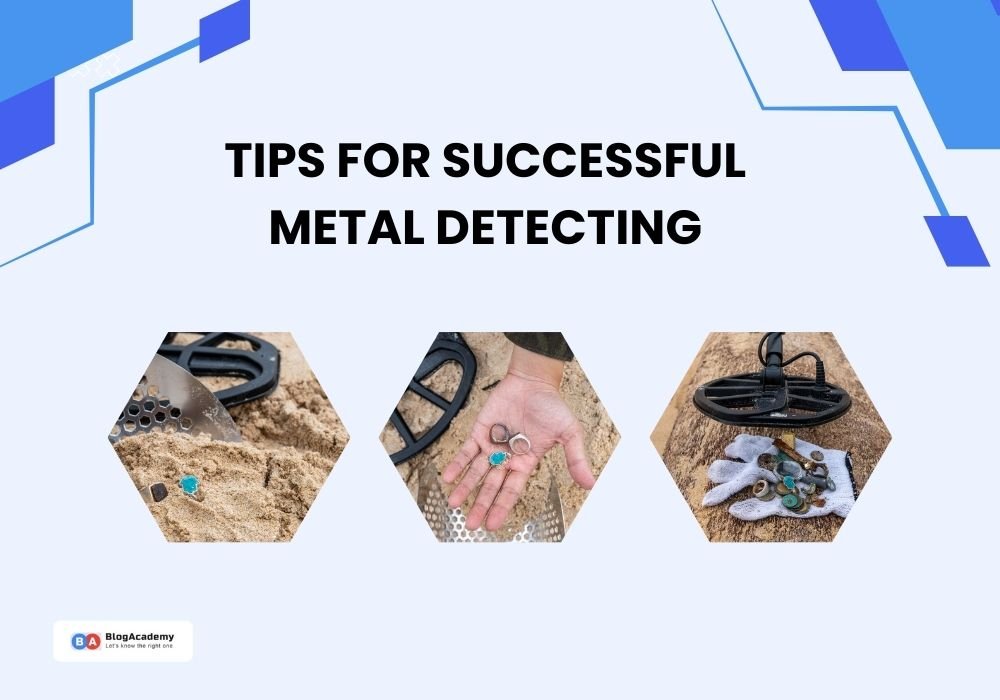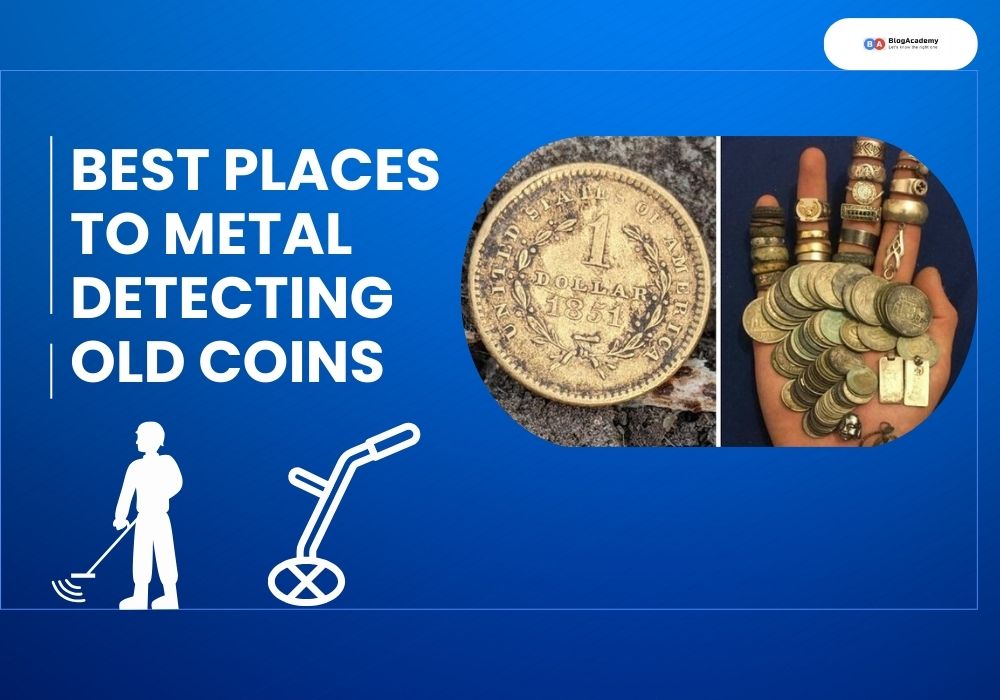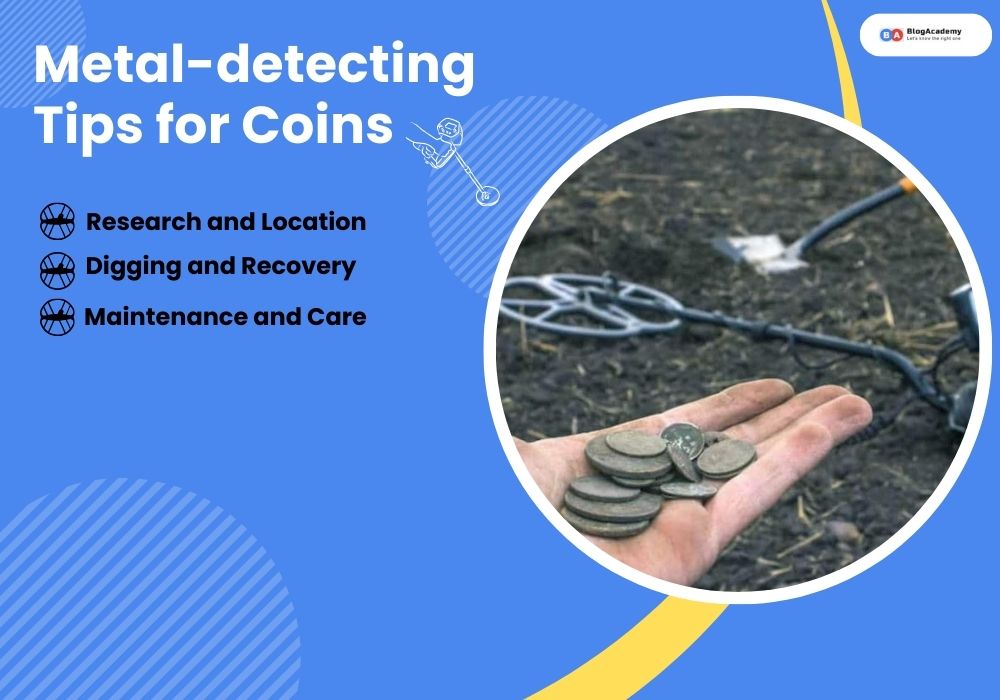What can you find with a Metal Detector? Yes, finding hidden treasures or lost objects is an exciting possibility when equipped with a metal Detector device. This tool can identify metallic objects beneath the surface by emitting electromagnetic fields and analyzing the responses they generate.
Its sensitivity can be adjusted to detect various metals, from coins to relics, aiding in archaeological digs, beachcombing for lost jewelry, or even surveying construction sites for buried pipes or cables.
With a simple sweep over the ground, a metal detector can reveal a world of hidden metallic wonders, making it a fascinating tool for enthusiasts and professionals alike to uncover history or valuable finds.
A Brief History of Metal Detecting
The roots of metal detecting can be traced back to the late 19th century, initially used primarily for military purposes to find landmines. However, it wasn’t until the mid-20th century that metal detectors became accessible to enthusiasts, sparking a wave of interest in uncovering buried history and valuable artifacts.
How Metal Detectors Work?
Metal detectors operate on the principle of electromagnetism. They consist of a coil, a control box with the circuitry and controls, and a shaft that connects the coil to the control box. When turned on, the coil emits an electromagnetic field into the surrounding area.
When this field encounters a metallic object, it induces a small electric current in the metal. This current creates another magnetic field around the metal, which the detector picks up, signaling the presence of metal.
What can you find with a Metal Detector?
The sheer diversity of items that can be discovered using a metal detector is astonishing. Here are some exciting things that enthusiasts often uncover:
- Coins: Coins are among the most common finds for metal detector hobbyists. From modern-day currency to historical coins dating back decades or even centuries, these treasures provide a glimpse into the past and can hold both historical and monetary value.
- Jewelry: Rings, necklaces, bracelets, and other pieces of jewelry are often lost outdoors, whether at beaches, parks or even in backyards. Metal detectors are excellent tools for locating these lost items, much to the delight of their owners.
- Artifacts and Relics: Hobbyists and archaeology enthusiasts use metal detectors to unearth artifacts and relics that offer insights into different eras of human history. These can include ancient tools, weaponry, and even pieces of armor.
- Civil War and Historical Finds: In regions with a rich history, particularly places that saw battles or significant historical events, metal detector enthusiasts have discovered items like bullets, buttons, and other remnants from the Civil War or other pivotal moments in history.
- Lost Treasures: While the chances of stumbling upon a chest full of gold coins might be slim, metal detector enthusiasts have indeed found treasures hidden or lost by people over the centuries. These discoveries can be incredibly exciting and rewarding.
- Modern-Day Artifacts: Beyond historical finds, metal detectors can also uncover more recent items like keys, watches, and tools that people may have accidentally dropped or misplaced.
The best places to can you find with a Metal Detector?
The excitement of finding something valuable or historically significant largely depends on where you use your metal detector. Here are some popular places where enthusiasts often search:
- Beaches: Beaches are fantastic locations for metal detecting due to the constant movement of people and the likelihood of items being lost in the sand. Jewelry, coins, and other treasures are frequently discovered along the shoreline.
- Parks and Public Spaces: Public parks, picnic areas, and sports fields are also prime spots for metal detecting. People often drop items while enjoying outdoor activities, providing ample opportunities for discoveries.
- Historical Sites: Areas with historical significance, such as old battlegrounds, ghost towns, and sites of ancient settlements, are magnets for enthusiasts looking to uncover relics and artifacts.
- Private Property (with Permission): With the landowner’s permission, searching private property can yield exciting finds. Farms, old homesteads, and areas where people have lived for many years can hold hidden treasures.
Tips for Successful Metal Detecting

If you’re considering trying your hand at metal detecting, here are a few tips to maximize your chances of finding something exciting:
- Research Your Locations: Research and choose your detecting locations wisely. Public parks, beaches, historical sites, and areas where people gather are often good spots.
- Learn Your Detector: Understand how your metal detector works. Practice using it in different environments and ground conditions to hone your skills.
- Patience is Key: Metal detecting requires patience. Not every signal will lead to a valuable find. Persistence pays off in this hobby.
- Respect the Environment and Laws: Always obtain permission before detecting on private property, and be mindful of local regulations regarding metal detecting in public areas.
- Join a Community: Engage with other detectorists. Online forums, clubs, and groups can offer valuable tips, advice, and camaraderie.
Ethical and Legal Considerations can you find with a Metal Detector
While metal detecting can be an exciting and rewarding hobby, it’s crucial to be mindful of ethical and legal considerations:
- Respect the Law: Always be aware of local laws and regulations regarding metal detecting. Some areas, especially historical sites and protected lands, may have restrictions or require permits.
- Respect the Environment: Leave the area as you found it. Fill any holes you dig and ensure that your hobby doesn’t harm the environment or disturb wildlife.
- Respect Property Rights: Seek permission before detecting on private property. Respect the landowner’s rules and boundaries.
What is the most common thing found in metal detecting?
Coins are the top treasures unearthed while metal detecting. They come in various shapes, sizes, and ages, spanning from ancient to modern times. Among the most frequent discoveries are pennies, dimes, and quarters.
Some detectors even stumble upon historic coins that reveal fascinating stories of the past. Their widespread use throughout history makes coins the go-to find for metal detector enthusiasts, offering a glimpse into different eras and cultures.
Has anyone found treasure with a metal detector?
Yes, many people have discovered treasure using metal detectors. In 2015, a group found a hoard of 5,251 Anglo-Saxon coins in England, dating back over 1,000 years. This discovery was one of the largest of its kind and offered insight into the past. Metal detectors have also unearthed ancient artifacts, jewelry, and even lost items of personal value, making them exciting tools for treasure hunters and historians alike.
Do people find things metal detecting?
Yes, people find various treasures through metal detecting! They discover coins, jewelry, historical artifacts, and sometimes even rare items buried underground. It’s like a real-life treasure hunt, where detectors pick up metal signals and enthusiasts dig to uncover what’s hidden. These finds can hold historical significance or personal value, making metal detecting an exciting hobby for many adventure seekers.
Conclusions
Metal detecting is more than just a hobby; it’s a journey through time and a way to connect with history tangibly and excitingly. The items found may vary widely, but each discovery holds its own unique story, making the hunt an endlessly rewarding experience.
So, if you’re ready to embark on a treasure-hunting adventure, grab your metal detector, explore new locations, and who knows, you might just uncover something extraordinary beneath the surface!
Happy hunting!



